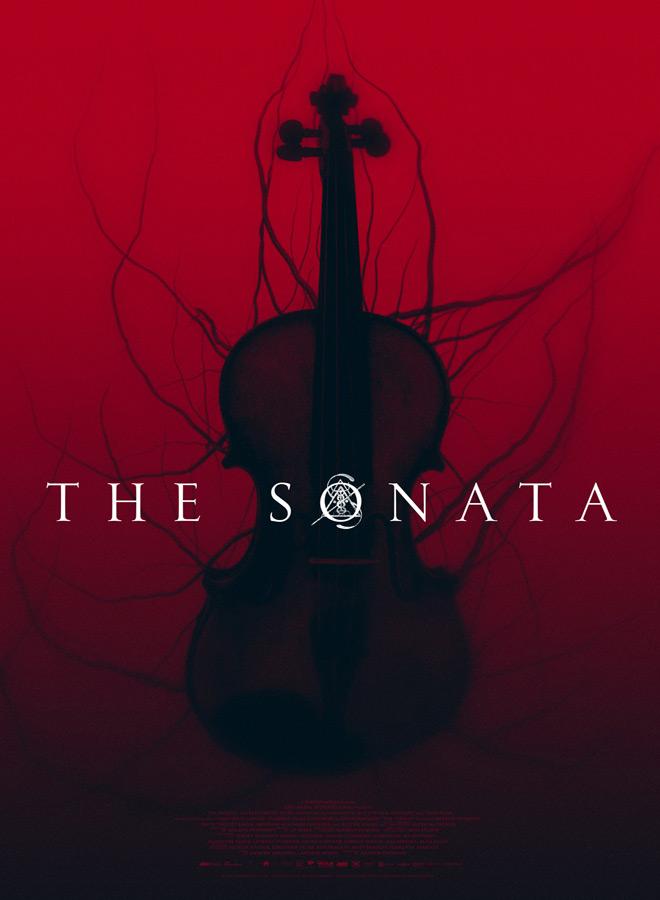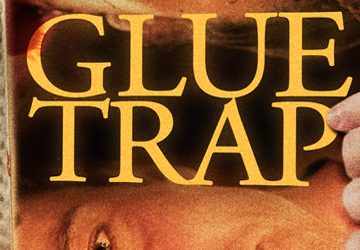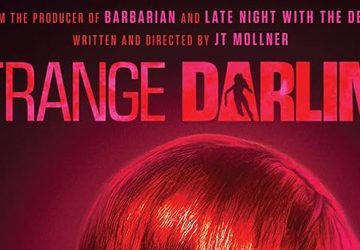Music holds the key to the heart, crossing language barriers fluently to unite us all—perhaps even those entities that exist beyond the mortal plane. Only the devil knows the answer, an idea that is explored in the magnificently haunting new Horror offering The Sonata. Screen Media delivers the film to select theaters, as well as On Demand, beginning on Friday, January 10, 2020.
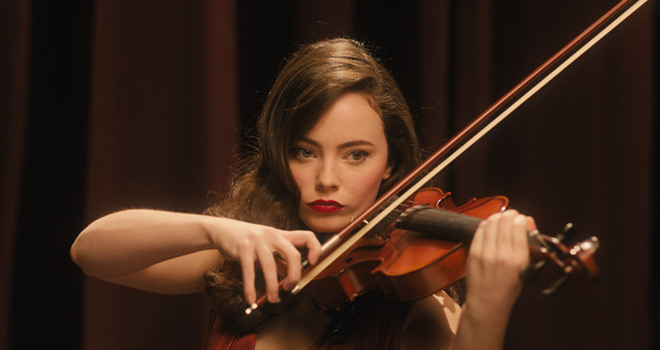
Known as the absurdly eccentric “savior of Classical music,” notorious composer Richard Marlowe (Rutger Hauer: Blade Runner 1982, Porters series) ends his life in a blaze of glory. A recluse, for years he sequestered himself away in an isolated and creepy French estate working on his masterpiece, a violin sonata. Along with the keys to his musical kingdom, this is all he leaves behind for his estranged daughter Rose (Freya Tingley: Hemlock Grove series, Once Upon a Time series), a virtuoso Classical violinist living in London.
With little time or desire to build close-knit relationships, successful musician Rose relies on her agent Charles (Simon Abkarian: Casino Royale 2006, Kabul Kitchen series) to fulfill a multitude of roles, including an awkward friendship. At her request, he begins to dig deeper into her inheritance, particularly the peculiar handwritten score for Marlowe’s final work. Laden with obscure symbology and some seemingly odd compositional variances, the piece of music is as bizarre as the man who dedicated his life to its creation.
As the search for answers begins to unravel more secrets about Rose’s infamous sire, Charles finds that the answer to the melodic puzzle might lie with Marlowe’s last known associate, Sir Victor Ferdinand (James Faulkner: Game of Thrones series, Paul, Apostle of Christ 2018). With his assistance, agent and client begin to decode the ominous score, and are forced to ask themselves if music does, in fact, have a tangible power.
Clocking in at 88 minutes, The Sonata is a masterful feature-length debut for Director Andrew Desmond (Entity short 2014, Galaxy of Horrors 2017), who co-wrote its screenplay with Arthur Morin (Love Meat Tender short 2019). The film also features the acting talents of Catherine Schaub-Abkarian (The Family 2013, Witnesses series), Matt Barber (Dracula series, Downton Abbey series), and more.
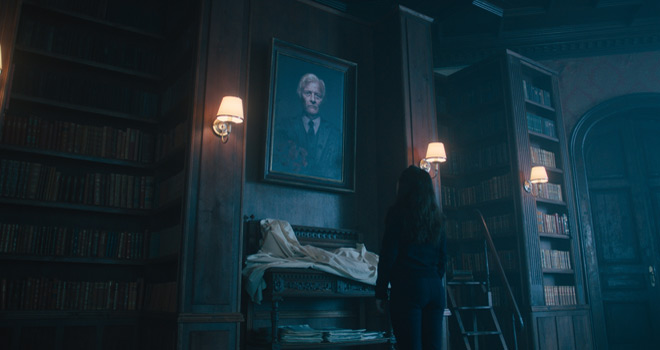
A rich supernatural tale thick with mystery, The Sonata is an elevated Horror experience on a level with other films that favor haunting atmospherics and macabre, slowburn storytelling, such as The Lodgers (2018), The Village in the Woods (2019), and even 2012’s The Woman in Black. Rather than reveling in jump-scares (though there is a great one!), this is a film that skips out on the obvious and goes for mood and substance over cheap thrills and gore. In fact, while The Sonata is haunting, even disturbing at times, not a single drop of blood is spilled throughout its runtime.
It must be said that for a film framed around a Classical composition, The Sonata delivers a divine score thanks to Alexis Maingauld, who composes and conducts. A stand-in for Marlowe’s masterwork, Giuseppe Tartini’s “Sonata in G Minor – Il Trillo Del Diavolo” is performed flawlessly and with great passion by exceptional violinist Olivier Leclerc. Complementing this dramatic score is equally exceptional, elegant costume design by Rolands Peterkops, owner of Mareunrol’s.
Besides its divine score, The Sonata is lush with stunning landscapes and gorgeous Tudor Neo-Renaissance architecture, all highlighted splendidly by the moody cinematography of Janis Eglitis (The Gambler 2013, Firstborn 2017). Filmed in Latvia, the 19th century Cesvaine Palace serves as Marlowe’s French estate and it is truly a marvel. Setting a mood all its own, the Cesvaine Palace serves as a character unto itself among the onscreen action.
All of this said, it is unsurprising that the film’s acting is exceptional. Though Hauer’s time on screen is exceptionally limited, he is wonderful in his role as the reclusive musical genius Marlowe. Similarly, Faulkner delivers an impressive performance as Marlowe’s contemporary, Ferdinand, who plays a very important role in unraveling the mystery.
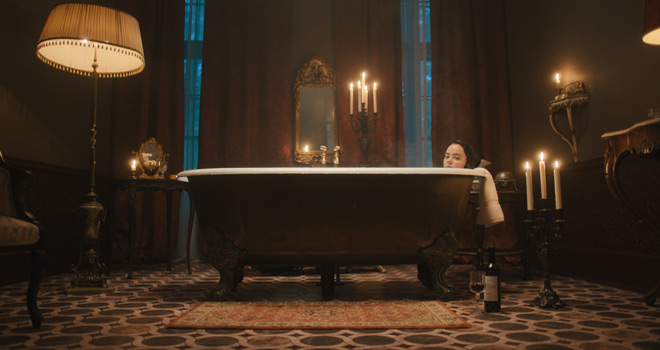
However, it is Tingley and Abkarian who carry the bulk of the weight on their shoulders and they make a brilliant pair. Tingley is petite and soft-spoken as Rose, a standoffish woman who is so enmeshed in her music that she has little else to speak of; a perfect mirror of her estranged father. Abkarian’s Charles sits somewhere between the walled off innocence of Rose, and the obvious oddities of her father: he is a more grounded father figure, but one that is often more self-serving than comforting. Playing off one another, Tingley and Abkarian offer exceptional performances in their roles.
So, what’s the downside to The Sonata? There really and truly isn’t one. Though the ending feels a bit anticlimactic, it’s organic to the tale. So, while some viewers might hope for a more terrifying whirlwind of blood and guts, this conclusion makes sense and suits the overall production. That said, it’s important to go into The Sonata understanding that this is not a mass-produced Horror offering that moves at the speed of light, never develops its characters, and splashes plasma on every available surface. This is tension and mood over screams, substance over red stuff. An earworm (or is it eyeworm?), Cryptic Rock give The Sonata 4.5 of 5 stars.
